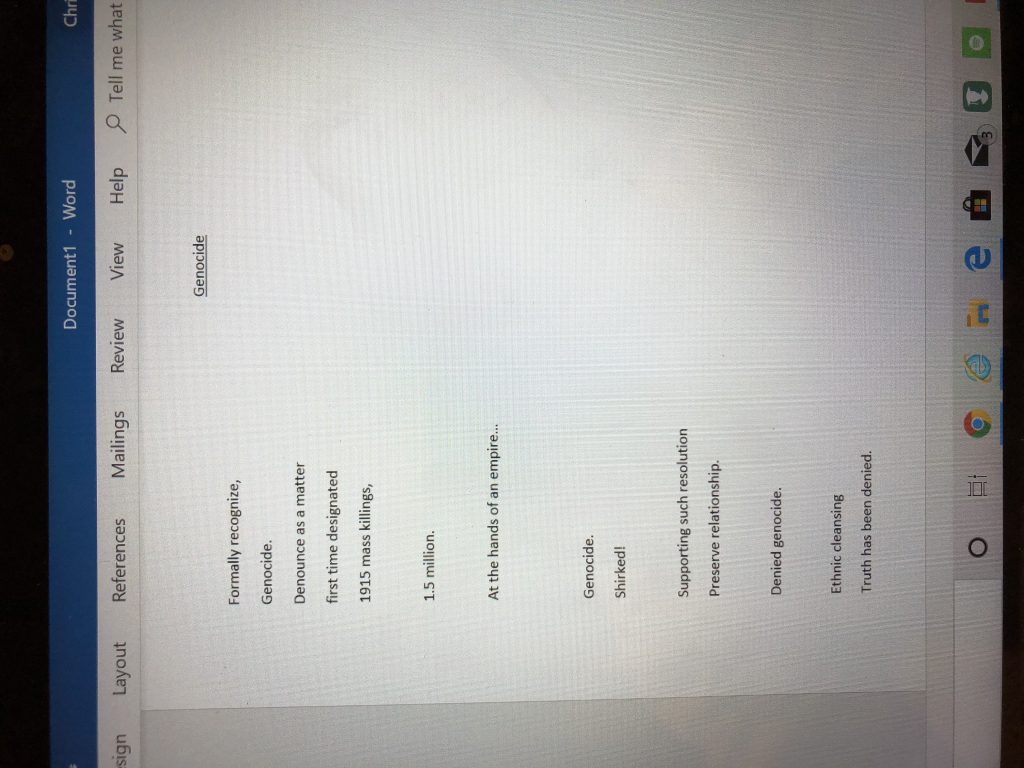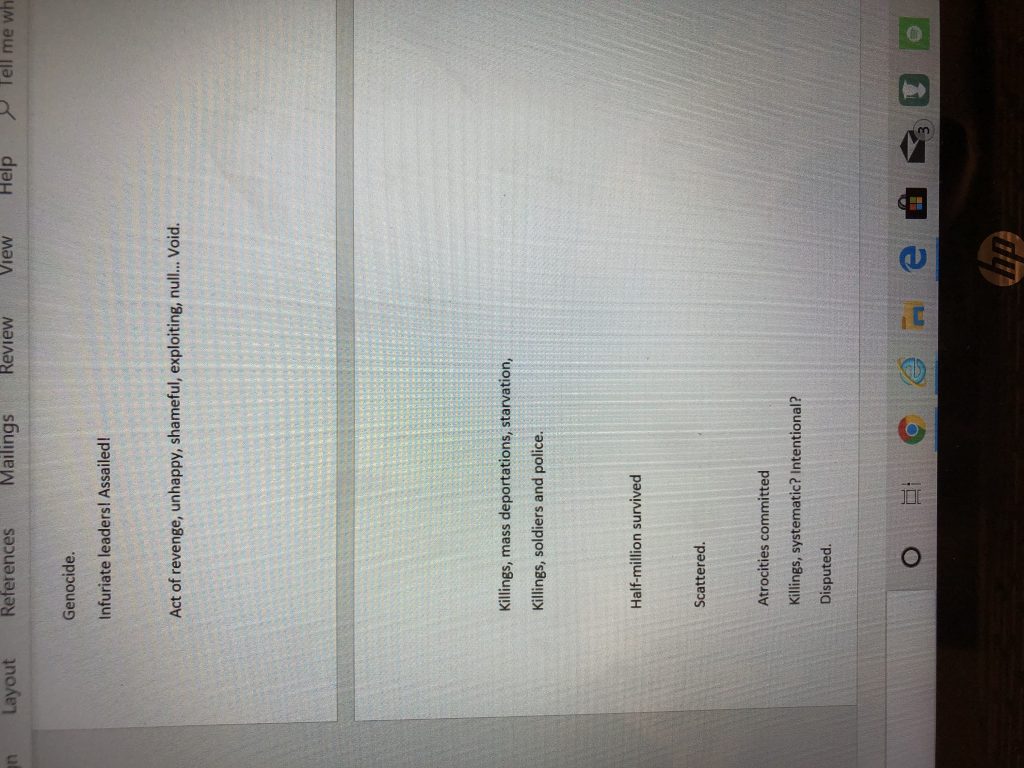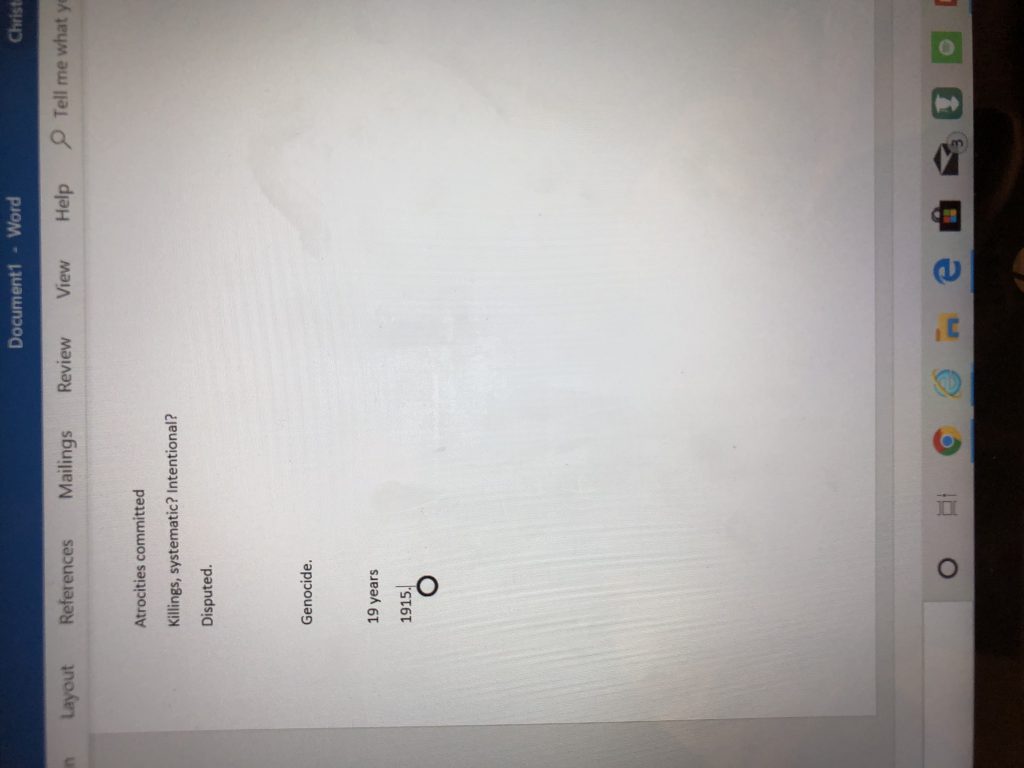When putting together this poem based on a New York Times article about the U.S. recognizing the Armenian genocide in 1915 by the Ottoman empire, I couldn’t help to think about how long this resolution took and the amount of criticism and disrespect to the civilians who died at the hands of an empire ruling over them. While writing this poem, I specifically choose the words I did to convey the amount of time that had passed before being recognized as a genocide and as well as Turkey’s denial of the tragic event as a genocide as a whole. Turkey’s hateful pushback, and not being able to own up to a tragic event of killing innocent people bothered me, so writing this poem portrays the feeling of the word “genocide” based on the article and actions taken upon Turkey and the United states.
While putting together the poem, I realized the inhumanity that leaders and people in the world have with similar events such as this and how the U.S. as well essentially really passed the bill to recognize it as genocide, in order to prevent Turkey’s continued attacks against the Kurds. Between both sides, using mass genocide as a political ploy and the pushback by Turkey to not recognize the genocide proves to show the ignorance of people when discussing a devastation to a number of Armenians over a century ago. Replacing words the way I did in my poem also made me think about how Zong! was constructed and written, expressing such an act or event in a different style and fashion to the reader where we can interpret different feelings from where we place our words and what words or sentences we construct. I felt genuinely upset and mad for the fact that the Armenians didn’t have a choice against the Ottoman empire, but someone like me does, in this time and in this country? It makes you appreciate the life and choices we may have over others, even if we have our own issues here too.



Works Cited
Edmondson Catie, Gladstone Rick. House Passes Resolution Recognizing... New York Times. 29 October, 2019.
